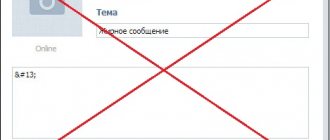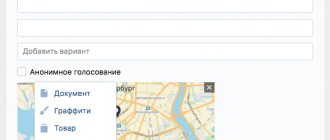Lol what is this in simple words
Lol (LOL) is a vivid representative of network slang, used, as a rule, in text correspondence, when it is necessary to convey information about one’s uncontrollably cheerful state, in other words, laughter, or to express this laughter symbolically in relation to someone or something. It should be noted that in the classical sense this term implies kind/benevolent laughter.
Opinions differ about the origin of the English abbreviation LOL. Most believe that it comes from the phrase L augh o ut l oud (laughing out loud), some suggest that it comes from the expression L aughing o ut l oud (laughing out loud), others claim that it comes from the phrase L ots o fl l aughs (lots of laughter).
In fact, this is not so important, what is much more important is the general semantic content of all variants of the formation of the abbreviation LOL, as a network meme, which is laid down by Russian-speaking Internet users using the network meme LOL when communicating - loud laughter, homeric laughter, booming loud laughter, “funny until colic”, etc. In fact, it is a much stronger analogue of the familiar emoticon - “:)” or “:D”.
LOL WUT and other English abbreviations that you won't understand right away
The American corporation Procter & Gamble has decided to patent trademarks that are consistent with popular Internet acronyms - LOL, WTF, NBD and FML. Such abbreviations are popular in chats and instant messengers, especially among the millennial generation. SM looks into what these letter combinations mean and why there are so many of them.
In general, he historically strives for short words. In the 12th century, many Old English words lost their endings, making the language much more concise. Compare the ancient Gothic habaidedeima and the same meaning in English had - “had”. Many borrowed words were also shortened: the first syllable fell off from the French avant-garde - and vanguard (“avant-garde”) remained in English speech.
Linguists have also noticed that abbreviations are often born from two or three English words - much more often than in Russian. What we denote by a full-fledged term is simplified in English to two letters, for example: liquid nitrogen - LN (liquid nitrogen). In Russian there is no abbreviation; the name of the substance is pronounced in full.
The acronyms that are so popular on forums these days have a more obvious origin. Americans invented the Internet, and the first SMS was sent in Great Britain in 1992. In other words, these countries very quickly immersed themselves in the new digital space. Typing a full word is much more stressful and takes longer than pronouncing it, so people began to look for an easier way. In addition, the first SMS had a limit of 160 characters, but on Twitter you generally had to contrive and fit into 140 (well, at least now you can go for 280 characters).
There is another hypothesis. Individual communities and social groups like to have their own slang. Which is not only easy to type, but also difficult for an outsider to decipher. In particular, a generation of teenagers developed their own slang, who communicated a lot on the Internet and did not want to let their “ancestors” know about their affairs. This is how purely teenage PAW (parents are watching), PITR (parent in the room), PAH (parents at home), KPC (keep parents clueless) were born.
The pace of modern life forces us to save time as much as possible - and not only the British and Americans. We write “plz” and “thank you” in work chats, and this is less and less often considered something impolite or indecent. Likewise, native English speakers in informal communication use PLS and PLZ instead of the longer please (“please”), THX instead of thanks (“thank you”). The vowels are simply removed from the words - the meaning of the word is obvious even without them, and in online correspondence this is the most important thing.
One of the original ways that native speakers came up with to save time is to replace part of a word (and sometimes the whole word) with a consonant letter. The effect of homophones is used here: sounds the same, spelled differently. For example: C = see (“see”), R = are (verb to be in the second person singular), U = you (“you”).
It’s even more interesting when part of the word is replaced by a symbol or number: 2 (two) is used as a preposition to or an adverb too (“too”), 4 (four) takes the place of the preposition for (“for”), and 8 (eight) - in place of the verb ate (“ate”). Finally, characters can also be read as a full word.
Only from these abbreviations can full-fledged dialogues be composed. Here, take a look at the correspondence of one couple:
She. ?4U (Question for you - “I have a question for you”). He. CUL8R (See you later - “See you later”). She. H8U m8 (Hate you mate - “I hate you, buddy”).
If a guy suddenly doesn’t understand that the girl wrote about hatred in an ironic way, he will most likely ask again: “LOL WUT” (“Lol what?”). Yes, the acronym “lol” is so firmly entrenched in the language that in Russian it sounds exactly the same as in English. In fact, it literally stands for “laugh out loud.” Well, WUT is the word what (“what”) with a protruding fake U in the middle. Usually in this form it is used in memes and friendly correspondence - a kind of cross between surprise and sarcasm.
LOL is a typical example of an acronym. This is an abbreviation (a word formed from the first letters of several words) that reads like a new word. There are a dime a dozen such acronyms in English, and something new appears every day. Today we will look at just a few common abbreviations and acronyms.
ASAP - as soon as possible. You're probably familiar with this abbreviation; it's often used in work environments when writing memos. It means as soon as possible, “as quickly as possible” or “the sooner the better.” If you do not provide it with a polite please (or PLS, at worst), it sounds rather cold and uncompromising. Be careful.
IOU - I owe you. Another common and very useful abbreviation. We read by letter: I [ʌɪ] + O [əʊ] + U [juː]. Reminds me a bit of “I love you”, doesn’t it? The phrase I owe you means “I owe you” - the interlocutor thanks you for your kindness and promises to respond in kind. Can be used instead of boring thanks like THX.
OMG - Oh my god! Oh my goodness! Oh my gosh! This is how young, impressionable girls often exclaim: OMG! It's Justin Bieber! (“Oh my God! It’s Justin Bieber!”). When corresponding, it can mean surprise or puzzlement. For example, if someone sent you a photo from five years ago, where you are dancing on a table, and you don’t remember such a fact in your biography.
Learn words on the fly with the Skyeng app
BRB - Be right back. If you need to leave for a while while working on the computer, quickly type BRB and you can run away. But not for long: you warned that you would return immediately. Be right back = I'll be right back. When you are back at work, you can write a short message to your colleagues: B2W (I'm back to work).
IMHO - In my humble opinion (“in my humble opinion”). This expression is already 15 years old - if Internet acronyms had their own current dictionary, it would be marked “outdated.” However, some people still use it out of habit. In RuNet they tried to decipher “IMHO” in their own way: “I have an opinion, I want to challenge it” or “I have an opinion, you can’t argue with horseradish.”
IDK - I don't know. Everything is clear here: with this abbreviation you can quickly make it clear that you are not aware of what is happening or cannot answer the question. For example, if a friend asks what you think about the new US sanctions against Russia, and you have been on vacation for two months and have not opened the news.
NBD - No big deal (“Nonsense, nothing special”). A slang phrase that allows you to cool the enthusiasm of your interlocutor or simply show your indifference to anything.
FML - F**k My Life (“F**k this life”). Used to mean “life is not going well.” This abbreviation is appropriate when you tell a friend about some of your failures, bad luck or funny failures. Or that you decided to quit the gym because you still don’t feel any benefit from it.
WTF? — What the f**k? The full expression itself is very common in English slang. It means a rather emotional attack on the interlocutor: “What kind of ***** [bullshit]?”, “What the fuck?” In its abbreviated form, it does not sound as rude as in a personal conversation, so Internet users use it anywhere.
You understand the general principle. Finally, we’ll invite you to a free online English lesson (sign up boldly) and give two funny pictures about how parents try to use Internet slang in correspondence with their children.
- What do IDK, LY and TTYL mean? - I don’t know, I love you, we’ll talk later.
- Okay, I'll ask your sister.
magazine.skyeng.ru
Word spelling options
The most frequently used and correct from a lexical point of view spelling options for this network meme are “LOL” and “LOL”. But the online community is inclined to quite freely use various modifications of this slang term, using it in various combinations of capital and lowercase letters (Lol, lol, Lol, lol, etc.), and also often in the form of a visually similar capital letter of the Cyrillic alphabet Y.
To give special strength to its emotional expression, variants of the spelling of a word very often include multiple repetitions of the vowel letter O (the same in Latin and Cyrillic), forming forms like LOOOOl or lo-o-o-o-ol.
But our extremely liberal, and sometimes downright reckless, Internet community is not limited to such spelling options. In addition to the classically traditional forms of using the online term Lol, not entirely correct variants of its modifications have appeared. For example, Lulz, often used to convey a malicious, malicious laugh, or OLOLO, denoting ironic or sarcastic laughter. And the Trololol variant, as a derivative form of lol, is generally used for trolling.
Thus, some participants in online communication distort the true meaning of the symbol word lol, which is intended to denote exclusively sincere, friendly, approving laughter, and not ridicule or mockery.
Other meanings
- A game. LOL is also the shortened name for the popular online team game “League of Legends”. It captivates millions of people around the world. The championship is held annually with a prize fund of $2.3 million and is watched by approximately 32 million viewers.
- Dolls. There is also a series of LOL toys. These are small surprise dolls, each of which is packaged in the form of a ball (capsule). They come with clothes, accessories and various gifts: stickers, bottles, etc. These dolls are now very popular: hundreds of characters are on sale, coloring books and cartoons are produced.
Author: Ilya Krivosheev
Where did this word come from
The word lol, as an online meme, was introduced into the Russian-speaking segment of the Internet from English-speaking countries (according to the majority, from Canada or the USA), as evidenced by the lexical decoding of this abbreviation. It has become widely used in Russian social networks, forums and chats relatively recently.
There is an opinion on the Internet that the word lol was first used in the early 80s by a certain Canadian Wayne Pearson on one of the forums of the global messaging network Usenet.
When to use
Naturally, the word LOL is used only by sophisticated active users of various Internet communities. Outside the network, it will be perceived as an indistinct interjection. And most people of the older and even middle generation, although they take part in communication in various online environments, when faced with any of the spellings of the Lol meme, will definitely have to turn to the appropriate dictionary for an explanation.
As noted above, various modifications of this term can have completely different semantic and emotional meanings. Therefore, if you do not want to offend or offend your interlocutor, and inform him of your positive reaction to something (someone) in the form of friendly laughter, you must use only the correct classic spellings of this term - Lol, lol, Lol, lol or its correct modifications.
LOL usage example
User 1: Ba-ha-ha:! The pizza guy just walked up to me and he was wearing pink pants and cowboy boots!
User 2: LOL! What fashion sense! ROFL!
Examples of using LOL and NSFW expressions
User 1: I just downloaded a copy of the latest Star Trek movie. Or at least what Star Trek was.
User 2: Is there something wrong with your download?
User 1: LOL, it was the adult version of Star Trek! Totally NSFW and I almost felt embarrassed playing the video on my iPad. Good thing I'm muted!
User 2: Don't do this kind of thing in the office - you could lose your job!
Person 1: LOL! This comedian is something. I can't believe he's saying that on TV!
Person 2: Is he pretty raunchy?
Person 1: Oh, this is absolutely NSFW. Don't view this on your work computer or you may lose your job.
Person 2: LOL. What things does he say?
Person 1: Just watch one of the episodes and decide for yourself!
The expression LOL, like many other expressions on the Internet, is part of the online culture.
What does it mean on social networks?
The correct understanding and use of the word lol in social networks and other online communication environments has already been discussed above. But, since for a significant part of users of Internet communities the true meaning of the online meme lol has already been lost, the word lol is often interpreted incorrectly.
A certain part of the social network audience, usually formed by children, teenagers or people with insufficient upbringing, understands and uses the word Lol as ridicule or insult. In this version of the use of this meme, it conveys the emotion of the stupidity (narrow-mindedness, simple-mindedness) of a person. Often, this term can be used to call a person a buffoon in such an audience. The modification of this slang term - Lolo - sounds even more offensive and humiliating.
Thus, the true meaning of the word Lol, as sincere, benevolent laughter, is transformed in such an audience into an offensive expression of emotion.
What does this mean in chat?
The use of the word LOL in chats is not much different from the practice of its use in social networks or in other online communication environments. Some differences may lie in the specifics (focus) of a particular chat, as well as in the characteristics of the audience of a particular chat.
Chats with a polite and well-mannered audience will use the term for its intended purpose, and in chats where there is an atmosphere of anger and hatred towards everything and everyone, Lol will sound unworthy. After all, laughter can be different and have a wide variety of shades. You can laugh out loud at a good, funny joke for a long time, which will contribute to the further development of a mutually respectful pleasant conversation, and derogatory offensive laughter will definitely cause a negative reaction and lead to a protracted verbal and meme skirmish, to further mutual insults and humiliation.
We spent a lot of time and effort to write this article. We tried very hard and if the article was useful, please rate our work. Click and share with your friends on social media. networks - this will be the best gratitude for us and motivation for the future!










